Why tell a story when there’s fiction? Why lyricism when there’s music? Why image when there’s film? Why bother when “no one listens to poetry”? Has postmodernism failed / what is postmodernism / are we still living in postmodernism / are we still living in modernism (what’s modernism)??? How does beat work / what’s measure / why rhyme / what’s line / is prose poetry or poetry prose? What’s it mean to say “poetry should be at least as good as prose”? What goes into it? What’s left out?
Should I bother to talk about it? What’s more important, the poet or the poem? Is there “a” poem? Is there a “poem”?
What’s “voice”? How to proceed? Should I know where it’s going? Where’s it going? How should it make me feel? How should it make you feel? Was it good for you? Is there anything missing? Anything more to say? Why should I do it? When should I do it? When do you do it? How long?
Why?


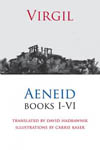
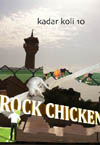
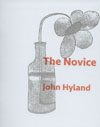
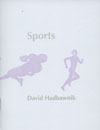
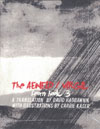
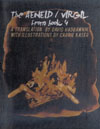
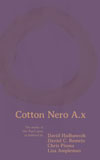
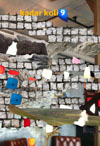
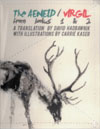
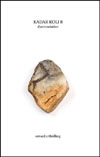
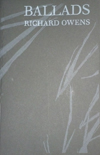
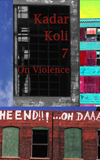
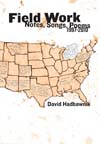
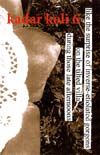
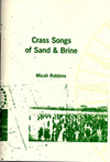
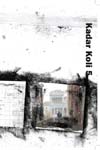
yes, I often struggle with the same questions/lack of answers. why question? why answer? why desire? why struggle?
But also– why poetry?
My questions to you, David, would be– Why does it matter if we’re in still living in postmoderism or modenism? How does knowing and pondering that affect what you’re writing? Why even ponder that stuff? And that’s not rhetorical– I’m curious to hear what you have to say, particularly since you’re teaching now, right? Students must challenge you and bring this stuff up????
As for beat, and rhythm, measure, rhyme, etc– it’s just patterns, to me– sound patterns. Me make patterns because it creates order, systems, and many humans find that beautiful and invigorating– they’re simply tools for understanding and experiencing. I often think about the difference between “lyrics” for music and “lyricism” in poetry– the truth is that words set to music are using the rhythms of the music, the ability to stretch long vowels, in ways you can’t do when speaking– singing is a whole different physical/vocal beast, and most “good” lyrics tend to reflect that fact– they’re doing things you can’t do in poetry unless you’re singing the work. They also don’t have to create their own sound beat/rhythm because of instrumentation. Poetry has to bring that in to the poem by force.
Simultaneously, I’m always blown away by the fact that most poets don’t really use sound in their poems much at all– much less than even the most mediocre of lyrics. Lyrics are most commonly very melopoeic, but absolutely not phanopoeic– a cultural relic?? Bob Dylan is often a good example of someone who is both– which is often why his early lyrics are very virgorous. Most modern poetry is often very phanopoeic, but almost totally un-melopoeic. Why is that? Of course, much is so bland, it’s almost entirely logopoeic– and has no strong imagery or sound, but is almost a mechanical retelling of a story in “spoken English”.
Anyways, to me, if you’re singing your poem, they’re lyrics and work in a very different way– I suppose it’s half decided by intent when writing, but really most by actual __performance__… intent just tends to make it work better if it’s performed one way or the other.
Seems to me, the poet is often more important when you’re the poet under consideration– the poem is more important if you’re a reader. This is part of the real crux for me with Spicer, where I began to disagree with him. I really feel like he’s looking at poetry from the perspective of the reader, trying to erase himself in some way through dictation. Which is all well and good– but I write because it gives me pleasure, because I’m creating something that makes some meaning, records moments, etc– i.e. beauty. I’m not interested in writing if I’m not the one doing it. Besides which, the process of writing and making meaning as a reader are so deeply separated from each other, that its very hard to somehow think of the poem “firstly”, since you can’t really dictate how it’s going to be read later on by others (or even yourself). Thus, I think of the writer first, as a writer. You give birth to it, and then it tends to do what it wants, with a bit of training and curbing on the writers part.
As for Spicer’s poem as time machine equation and the “barnacles” of time (I think??)– you can’t erase them, and I guess I just think of the poet as one of those things. You write for your own reasons to experience/understand/evoke what you want. The reader reads for their own reasons. When I read– well, then I think of the poem first. I don’t understand why people don’t separate these two actions more thoroughly. ??
That’s my take anyways. I write because I feel compelled to make meaning, to attempt to understand, to “record”. When I stop feeling the need, I’m sure I’ll try something else. Why poetry? I often think that’s largely by accident– one has an aptitude for language, at the right time you are introduced to poetry, you have role models to see that being a poet is real, a community at the right time, economically you find the time, etc. In time, it’s a habit like many others– you’re more skilled at expressing through the medium, and understanding it better you take more pleasure in the reading and writing of it– thus you tend to stick with it.
Does it do something other forms– theater, music, prose, painting– don’t do?? Seems that way to me, but perhaps that’s because I’m more used to working in the medium. I’ll have to think on that one…..
Sorry for such a long post. Hope there’s something interesting in there.
Well, as I began to talk about with Micah last night, I sort of put this out there as a response to a reading i went to recently that left me a bit disappointed… i felt that the fiction writer on the bill did a much better job of “building” the text imaginatively, i.e. each part of the text felt thoroughly imagined and “real” in that sense — which is maybe why i dropped the reference to spicer that you picked up — “we blow the sentence pure and real” etc. — the poetry just felt very as you say “logopoia,” although i don’t even know if i’d give it that much credit — bland retellings of not very interesting moments.
this led me to recall pound’s big crisis, looking around and realizing all the best writing of his day was being done by prose writers, flaubert, joyce, etc., the poets just mimicking stale forms and writing flabby, flimsy sentences. so i got to thinking of the postmodern “project” of not only inventing new forms but recycling old ones, esp. in connection to an essay by marjorie perloff on narrative in poetry, how it’s been neglected since the late stages of romanticism and how certain poets (pound, of course, but later ashbery, dorn, i’d argue spicer) have picked it up again and done interesting things with it.
suffice it to say that i don’t at all feel that we shouldn’t bother writing poetry, but i do wonder if there’s not, as perloff suggests, a continuing fascination with the stand-alone “lyric,” where the poet gets on and off the page as neatly and poetically as possible (she quotes a charles wright poem in this connection). funny you mention dylan — i’ve been listening to a lot of him lately, i think his early stuff, as you say, is just about perfect poetry, hitting on all cylinders, melo, logo, and phanopoia. in addition to which it tends to tell STORIES; basically all of “bringin it all back home” does this, a stunning album start to finish. are the stories a vehicle for the poetry (i.e. sound, meaning, etc.) or the main point? does it matter?
as for what you say re. spicer i don’t know… his description of his own poetic process often doesn’t sound very pleasurable; he ends up being little more than a radio getting signals. he actually says “words” are the barnacles that stick to the real. i think it’s an interesting way to think about poetry, but it’s hard to imagine being as extreme about it as he apparently was. the main thing i take from it is the sense of drama, of story, even if fragmented, and the feeling of something richly imagined, “real.” i guess i’m looking as both reader and writer for that sense of realness, that richness and mystery, and wondering why we don’t seem to demand it more from poetry.
as a sort of postscript, both micah and i have been reading all these wonderful “postmod” novels in dr. cohen’s class, pale fire, lot 49, if on a winter’s night, etc., and i’m wondering about similarly great texts in the realm of poetry. guess i’d nominate gunslinger and some of spicer’s more successful texts. haven’t read enough ashbery. wondering if there are any more out there that you might know of…
“Why does it matter if we’re in still living in postmoderism or modenism? How does knowing and pondering that affect what you’re writing? Why even ponder that stuff? And that’s not rhetorical– I’m curious to hear what you have to say, particularly since you’re teaching now, right? Students must challenge you and bring this stuff up????”
I think we’re in some ways still in postmodernism, in some ways not yet there, in some ways beyond it. i know what you’re getting at — that thinking too much about this stuff is counterproductive — and i agree. but i can’t help it. as for students questioning me, not really. i don’t think they’re really aware of such things (although they might surprise me if i brought it up). i actually debated whether to talk about this issue with my creative writing kids, but decided against it — it would just mess with their heads, i think. most of them seem extremely comfortable in postmod procedures, oulipo games, etc., so i’ll just leave them to discover it for themselves…
“Simultaneously, I’m always blown away by the fact that most poets don’t really use sound in their poems much at all– much less than even the most mediocre of lyrics.”
exactly — my theory has always been that poetry has ceded the territory of lyricism to song lyrics, story-telling to fiction… time to strike back!
if you read even those old showtunes, gilbert and sullivan, rogers and hart, andy kazan, etc., the ability to use sound in every conceivable way — chiasmus, internal rhyme, alliteration, short and long vowels, etc. — is incredibly sophisticated.
Wow, an actual interesting discussion about poetry. Almost makes me wish I was still in school…..nah.
But seriously, it’s hard to have these types of discussions with a baby, especially since my speech has deteriorated into gibberish. But I learned three new words: Melopoeic, phanopoeic, and logopoeic. Now I’m starting to think of poets who don’t include all three or balance them somehow. This is sometimes why poetry in translation can be lackluster, since the melopoeic is often sacrificed for the phanopoeic and logopoeic. Including all three probably demands great liberties with the text.
I was just listening to Bringing it All Back Home last week, wishing I could do anything half that good.
As per your mention of Ashbery. I’ve read/surveyed just about his whole catalogue, and can say, without a doubt, that “The System,” a fifty of so page prose poem (depending on which book you find it in) is great work of poetry that fires on all three of said cylinders. That is of course if you find his chattering collage/parody style melodic. It’s not melodic in the assonance-heavy, iambic style favored by the British lyric, but melodic in the way the continual and cluttered noise of a city is. The phanopoeic and logopoeic parts are presented as challenges for the reader, since the poem coheres through a kind of phantom logic, using the nuts and bolts of syntax (as in “therefore” and “which brings us to…”) to hold together disparate elements and juxtaposed ideas and imagery. The poem is in the process of making sense, it just never gets there, and we never get a clear read on the ever-shifting scenery. The poem pretends to be centered on some overwhelming idea (oh, do not ask what is it?) though what that is, we’re really not sure, but the urgency and charm of the prose encourage to keep reading, in order to find out. It’s certainly a machine made out of words, but it appears to be churning on it’s own energy and for no purpose in particular, other than the because it has its own source of energy, reason enough apparently. This poem is an exploration of the three questions, What is melody? What is meaning? What is Truth? The poem doesn’t make any answers, but rather explores the questions. Sounds heavy, but it’s really pretty funny, too.
On the stand alone lyric, I agree. It’s only one possibility for poetry, and a fine one, but I too wish it were not so dominate. I think this must be due to economic issues (ie less space). I’m really interested in longer projects and big monster poems that eat up page after page. The poem-novel seems like a good idea, not like those lame novels in verse. An not an epic or anti-epic or ironic epic or neo-formalist Derek Walcott epic. No epics.
In his Apology for Poetry (1581), Sir Philip Sydney observes “Other sorts of Poetry almost have we none, but that Lyricall kind of Songs and Sonnets.†Though “sonnets” don’t predominate among the “stand alone lyric” today, I think Sydney is pretty accurate, even 400-plus years later.
David says his “theory has always been that poetry has ceded the territory of lyricism to song lyrics.” But maybe the reverse of this was true for the past few hundred years? Maybe the balance has just recently been restored? Just something to think about.
Also, I don’t think there is much reason to fret over bad or “disapponting” poetry (as long as it’s not our own 🙂 ). Worrying about why poetry/if poetry/when poetry/what poetry seems like a les-than-ideal use of mental energy. I say: Write poetry. Right poetry. There’s no accounting for what everybody else is doing.
One last thing: I think what Andrew says about “big monster poems that eat up page after page” as a curative is interesting. But what about poems that take up no space? poems that are so minute you might not notice them? Is that one over there? Andrew speculates on the possiblities for the poem-novel. I propose some additional alternatives: the poem-joke. the poem-rejection letter. the poem-hiccup. the poem-gum wrapper. the poem-toothpaste tube. the poem-computer virus. the poem-spam message. the poem-porno now available on DVD and Blu-Ray. the poem-pod nano (holds up to 10,000 poems, available in white and black. Now features a brighter display, longer video battery life, and a poem search function. All of this in a sleeker, slimmer design. In fact, it’s no bigger than a toothpick.) the invisible poem.
Well, the real reason I think people fret over “bad poetry” is that, in the end, poetry is made in a community. Most people aren’t creating poetry in a vacuum. Thus, you want to see amazing things done with it– I love the form, I want to see it be used with real power. That’s exciting for me– both as a reader and a writer. It inspires me. I want to see other people experience and appreciate poetry too. Crappy poetry getting made and recognized everywhere is depressing. Going to readings and being bored sucks– which must happen 4 times out of 5, if I’m lucky.
At heart, I think the real issue is that many poets think of poems as simply diary entries. They “just write it” and don’t really think of it as a public form. Which is fine– truly, I really mean that– but then people should just write them in diaries, rather than inflicting them on others. I come back to Spicer here, and the discussion of “bringing vaudeville back in to poetry”. I fell like he sort of got away from that in some of his later writing (at times)– but I feel like this early statement of his really nailed the issue.
Do directors and screenwriters and novelists think of their forms in this way?? I don’t know, but it’s not what I think of when I ponder writing a screenplay or a short story. I automatically ponder the audience, bringing them in to the tale– but if I write poetry, well, then I have to work on it. Because the whole presumption is that it’s not really a public form anymore.
Stuff like Dylan, or narrative poems, good prose (even bad prose, frankly), film, etc– these things work, in part, from the very beginning, because they recognize they are a public forum of art. It’s meant to be received by others. You are speaking to others. Poetry has largely lost that. And sadly, that’s why sort of lyrically mediocre stuff like, say, much of Maya Angelou becomes big– she has a voice, and she is speaking directly to people about issues that matter to them.
I’m not saying we should all start writing “themed” poems on hot political topics, or important social issues…… lol. But I am saying it would be nice if more poetry understood there was a public out there, eager to hear their poems, if poets would just speak __to__ them– tell a story (short or long, whatever), make the poem truly engage the reader/listener– at least as much as even average prose or film does– with real people, real voices, real __drama__, real beauty, real events. Poets are so internal, we seem to have forgotten how to invest our poems with real emotion or drama.
I think this stems partly from the lyric dominating poetry. I love lyric poetry– and I love some “private” stuff– poems written in diaries, perhaps never meant to have been seen (Dickinson, Osip Mandelshtam), but there is a deeply set precedent of navel gazing being the most important thing that is going on in American Poetry, and its killing some good poetry. Write those poems when you need to (why stop that??), but there’s other stuff to be written, I guess. People would never live in hole socially, but somehow they don’t think twice about making poetry that doesn’t really have any “connective tissue” to it.
I also feel, in part, that a lot of that attitude stems from successful attempts at making the “poem as diary of my life” have drama. Sylvia Plath, etc. These aren’t my favorite poems by any stretch, but they work, in part, because you understand the larger dramatic/emotional context. They’re deeply personal, deeply internal at times, but they’re still about conflict– and that leads to drama. The problem is much stuff that has no sense of that, but is still very internal– ramblings, etc.
On the note of drama– this last summer, I re-read the “Spoon River Anthology”– and I’ve gotta say, the first 150 pages of this book were fantastic to me. Was it “great poetry”? No, I don’t think so, honestly. Although he does have an ability to catch the real speech cadence of people. But the stuff really worked because there was an innate sense of drama in the whole affair. It was a page turner. Honestly, I don’t care if it’s poetry, or some hybrid, or prose cut into poetry– the real thing was that it worked on me emotionally.
I honestly think there’s often too strong a focus on the details of the language in poetry. I know it’s like heresy to say it. Of course a person wants the right word at the right time, etc., to make sounds that sing, etc. but there are some tendencies (perhaps because of the growth of linguistics? perhaps from the legacy of the Language school?) to focus on the word, on the comma, at the expense of the sentence. The first thing should be to move people, to tell a story (whether about a bee on a flower, or walking after a snow storm–a la lyrics– or whether to really build a “story” in the traditional sense of the word), to create real __drama__, and then to chisel the language. A beautiful poem that doesn’t move me means shit to me. You know?
Thinking on all this– I guess the first questions I should be asking myself when drafting a poem, when starting a poem, etc. is all the stuff a good story needs (even if its a lyric)– What’s the setting? who’s the main character? What do they want? What’s stopping them from getting it? What’s the central conflict? etc and then hewing to the bone of that.
OR, perhaps that’s all crap. ??
There’s a very real joy to be had in paying attention and being carried away in the moment. Perhaps that’s the only real thing, and the rest is too premeditated. Nothing can take away or invalidate the experience of diving into white paper and having no idea where you’re going. Even then, I’d like for more lyrical poems to have a sense of space– for attention to be payed to the details of the veination of leaves, or the quirks of body posture and hand movements, for the pauses in speech where someone wants to say something, or sunlight hitting a puddle late in the afternoon– to really have a “body” in that phanopoeic way. And, in the end, also to allow themselves to be beautiful __physically__ in the only way poetry can– through sound repetition and pattern.
Seems to me that what David (and the rest of us) is missing is a sense of genuine imagination in poetry. Taking experiences (life) and re-producing them imaginatively into fresh new experiences (art). I can see why narratives seem more imaginative than lyrics: a narrative often relies on imagined people, places, and events while lyrics often rely on real experiences translated into “beautiful” langauge. I am less than thrilled when I read a poem that does not suprise me with its deconstruction/reconstruction of experience, despite its beautiful imagery/language/sound/beat/insight/truth/etc. I want the boring layer of life that clings to everything I see to be stripped away by the imagination. I want to see what festers beneath. What I don’t want is a well crafted, asthetic look at something that I can already see. I want to be shocked into seeing something I’ve never noticed before. Maybe this is an unreasonable desire. But the imaginative details in, lets say, “The Odyssey” and “The Rime of the Ancient Mariner” do shock me into a greater awareness of my experience in this life. An exciting experience. An enriching experience. A beautiful experience. Something new! I’m also shocked into this imaginative awareness of the world (imaginative, but somehow more real than the ordinary) by the postmodern novels that David mentioned. The problem seems to be that we must look to the poets of old for this experience while the fiction writers of today are on task. But why? Why aren’t poets shocking us?
Pingback: Primitive Information » Blog Archive » Poems… for the People?
Pingback: Anonymous